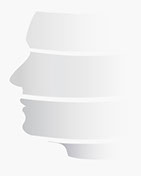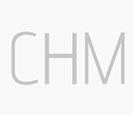What is Tension Headache?
Tension-type headache are the most common of the headache types. In spite of this their causes and symptoms are more complicated and unique than might be expected. The word "tension" can be misleading, too, because not all tension headaches are caused by tension. In fact, many people do not seek medical attention when they should because they assume the cause of their head pain must be tension or stress. Please note that these headaches are not caused by another disease.
Physicians describe two tension-type headaches: episodic and chronic.
Episodic Tension Headaches - Symptoms and Demographics
Generally, episodic headaches occur randomly and are often the result of temporary stress, anxiety, fatigue or anger (see the Trigger section). Symptoms include soreness in your temples, a tightening band-like sensation around your head (a "vice-like" ache), a pulling feeling, pressure sensations, and contracting head and neck muscles. This is why tension-type headaches are often referred to as "muscle contraction" headaches. Symptoms can also include a tightness in your neck (as if your "head and neck were in a cast"); only certain positions seem to provide relief. The headache surfaces in your forehead, temples or the back of your head and neck.
If you can ease or eliminate your headache by taking an over-the-counter (OTC) medication -- which brings relief in about one to two hours -- then yours are probably episodic headaches. While you may have several of these tension-type headaches during a month, you are probably managing them yourself with an OTC analgesic, stress reduction like exercise or just a good night's sleep.
If, however, you find that you are taking medication daily or almost daily, then you should see your physician because yours may be chronic tension-type headaches. Or, you may be experiencing rebound headaches (medication over-use headaches MOH), which are medication-induced and both aggravate and mask other headaches.
Chronic Tension Headaches - Symptoms and Demographics
A tension-type headache that occurs just about every day, and may have been going on for months, is chronic. It is the frequency that distinguishes episodic from chronic headaches. If you suffer from chronic headaches, you probably have not found much relief in over-the-counter medications for a pain that seems constant and unrelenting or you may have medication over-use headaches (MOH) as well.
Chronic tension-type headaches may also be the result of stress or fatigue, but more than likely, they can be attributed to physical problems, psychological issues, or depression. A pattern of chronic tension-type headaches generally begins between the ages of 20 and 40, and every personality type can experience them. However, although chronic tension-type headaches affect both men and women, women do have a greater incidence of them. This may be due to the fact that women seek medical help and report headaches more frequently than men. Children's tension-type headache will feel the same way and will usually occur at school and can seem to disappear when they are relaxing, eating or playing.
(The tensions headaches discussed in the following sections on Triggers and Treatment will be referring to “at-risk” to become chronic or already chronic tension headaches.)
Site Map
Disclaimer




